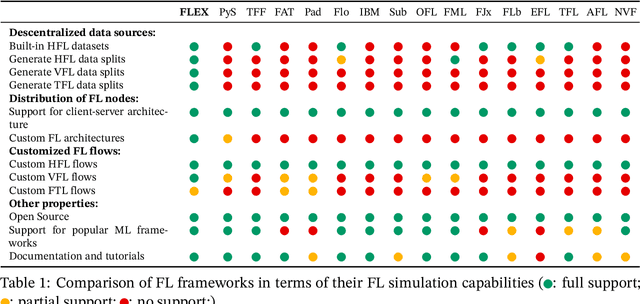Daniel Jiménez-López
Membership Inference Attacks fueled by Few-Short Learning to detect privacy leakage tackling data integrity
Mar 12, 2025Abstract:Deep learning models have an intrinsic privacy issue as they memorize parts of their training data, creating a privacy leakage. Membership Inference Attacks (MIA) exploit it to obtain confidential information about the data used for training, aiming to steal information. They can be repurposed as a measurement of data integrity by inferring whether it was used to train a machine learning model. While state-of-the-art attacks achieve a significant privacy leakage, their requirements are not feasible enough, hindering their role as practical tools to assess the magnitude of the privacy risk. Moreover, the most appropriate evaluation metric of MIA, the True Positive Rate at low False Positive Rate lacks interpretability. We claim that the incorporation of Few-Shot Learning techniques to the MIA field and a proper qualitative and quantitative privacy evaluation measure should deal with these issues. In this context, our proposal is twofold. We propose a Few-Shot learning based MIA, coined as the FeS-MIA model, which eases the evaluation of the privacy breach of a deep learning model by significantly reducing the number of resources required for the purpose. Furthermore, we propose an interpretable quantitative and qualitative measure of privacy, referred to as Log-MIA measure. Jointly, these proposals provide new tools to assess the privacy leakage and to ease the evaluation of the training data integrity of deep learning models, that is, to analyze the privacy breach of a deep learning model. Experiments carried out with MIA over image classification and language modeling tasks and its comparison to the state-of-the-art show that our proposals excel at reporting the privacy leakage of a deep learning model with little extra information.
FLEX: FLEXible Federated Learning Framework
Apr 09, 2024



Abstract:In the realm of Artificial Intelligence (AI), the need for privacy and security in data processing has become paramount. As AI applications continue to expand, the collection and handling of sensitive data raise concerns about individual privacy protection. Federated Learning (FL) emerges as a promising solution to address these challenges by enabling decentralized model training on local devices, thus preserving data privacy. This paper introduces FLEX: a FLEXible Federated Learning Framework designed to provide maximum flexibility in FL research experiments. By offering customizable features for data distribution, privacy parameters, and communication strategies, FLEX empowers researchers to innovate and develop novel FL techniques. The framework also includes libraries for specific FL implementations including: (1) anomalies, (2) blockchain, (3) adversarial attacks and defences, (4) natural language processing and (5) decision trees, enhancing its versatility and applicability in various domains. Overall, FLEX represents a significant advancement in FL research, facilitating the development of robust and efficient FL applications.
Federated Learning and Differential Privacy: Software tools analysis, the Sherpa.ai FL framework and methodological guidelines for preserving data privacy
Jul 02, 2020Abstract:The high demand of artificial intelligence services at the edges that also preserve data privacy has pushed the research on novel machine learning paradigms that fit those requirements. Federated learning has the ambition to protect data privacy through distributed learning methods that keep the data in their data silos. Likewise, differential privacy attains to improve the protection of data privacy by measuring the privacy loss in the communication among the elements of federated learning. The prospective matching of federated learning and differential privacy to the challenges of data privacy protection has caused the release of several software tools that support their functionalities, but they lack of the needed unified vision for those techniques, and a methodological workflow that support their use. Hence, we present the Sherpa.ai Federated Learning framework that is built upon an holistic view of federated learning and differential privacy. It results from the study of how to adapt the machine learning paradigm to federated learning, and the definition of methodological guidelines for developing artificial intelligence services based on federated learning and differential privacy. We show how to follow the methodological guidelines with the Sherpa.ai Federated Learning framework by means of a classification and a regression use cases.
 Add to Chrome
Add to Chrome Add to Firefox
Add to Firefox Add to Edge
Add to Edge